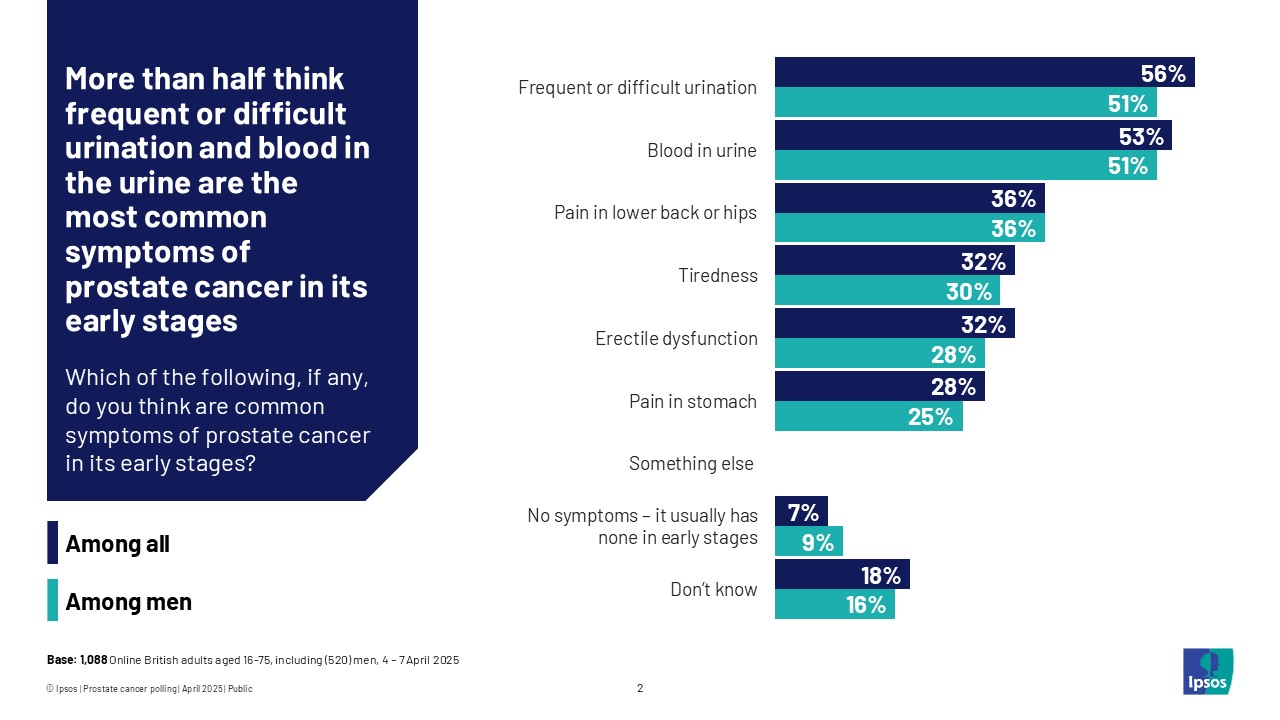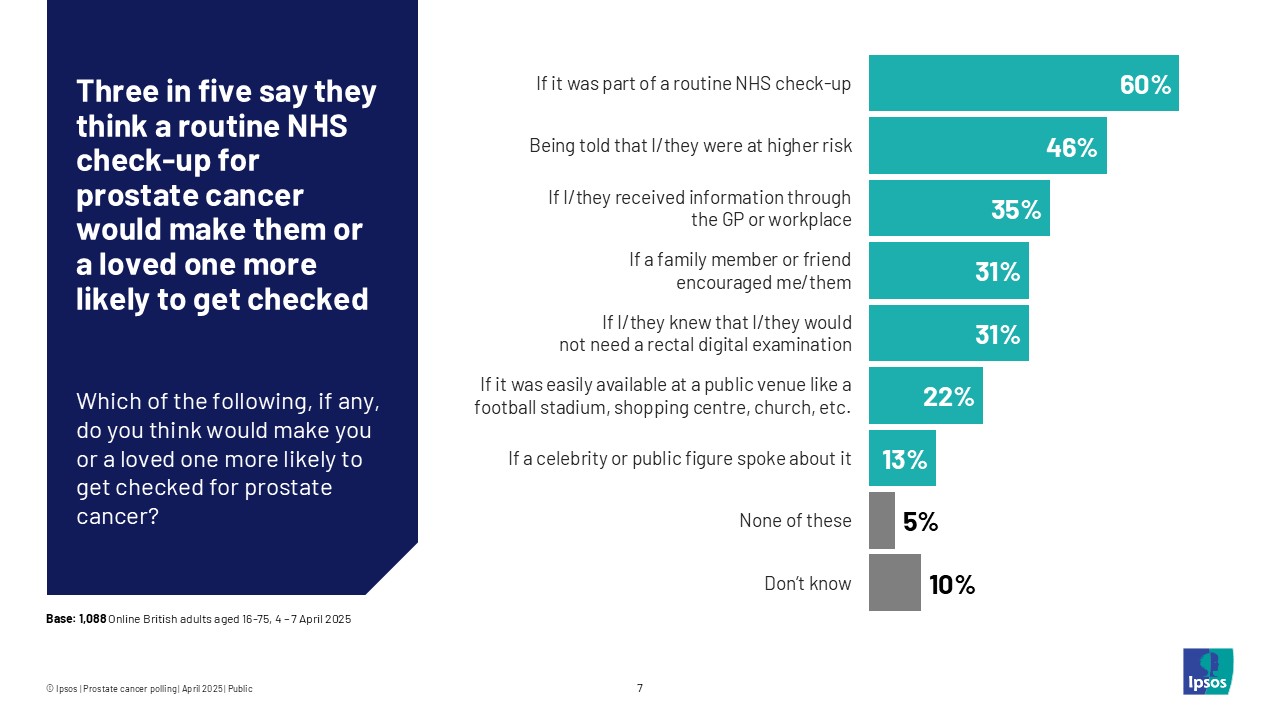Prostate cancer: knowledge gaps in symptoms and risks revealed by Ipsos poll, but strong public support for increased testing
Ipsos UK has released the findings of a new poll on prostate cancer, in partnership with the Daily Mail. The data reveals widespread awareness gaps and highlights the need for greater public education. The survey, conducted online among 1,088 British adults aged 16-75 (including 520 men) between 4th and 7th April 2025, explored public perceptions of prostate cancer symptoms, risk factors, and testing.
Key findings include:
- Less than 10% correctly identified that prostate cancer typically has no symptoms in the early stages: Over half thought frequent or difficult urination (56% overall, 51% of men) and blood in urine (53% overall, 51% of men) were common early symptoms of prostate cancer. Around a third picked pain in the lower back or hips (36% overall, 36% of men) and tiredness (32% overall, 30% of men) as potential indicators. However, only 7% overall and 9% of men correctly identified that prostate cancer typically has no symptoms in the early stages.

- Awareness of some risk factors, but not others: Around half correctly identified being over 50 (56% overall, 55% of men) and having a close relative with prostate cancer (49% overall, 45% of men) as risk factors. However, awareness of other risk factors, such as smoking (39% overall, 44% of men), being overweight (39% overall, 43% of men), and being of Black ethnicity (24% overall, 27% of men), was considerably lower.
- Widespread awareness of prostate location, but knowledge gaps on function: While eight in ten correctly located the prostate in the pelvis (83% overall, 79% of men), only a quarter of people (25% overall, 26% of men) correctly identified its primary function as producing fluid in semen. A third admitted they didn't know the prostate's primary function (34% overall, 30% of men).
- Support for testing: Overwhelmingly, the public (86%) believes that the NHS should offer tests to men at higher risk of prostate cancer, even if there is an immediate cost to the NHS. Fieldwork was conducted before the release of a new study showing promising efficacy for an at-home spit test to spot the disease early.
- Motivators for testing: The most significant motivators for getting checked for prostate cancer were if it was part of a routine NHS check-up (60%) and being told they were at higher risk (46%). Other motivators included information from a GP or workplace (35%), encouragement from family or friends (31%), not needing a rectal digital examination (31%), easy availability at public venues (22%), and celebrity endorsements (13%).

Commenting on the findings, Anna Quigley, Research Director at Ipsos said:
Our findings underscore the need for continued public awareness campaigns like the Daily Mail’s to address misconceptions and improve understanding of prostate cancer. Early detection is crucial for successful treatment, and increased awareness of symptoms and risk factors can empower individuals to seek timely medical advice.
Technical note:
- Ipsos interviewed a representative sample 1,088 online British adults aged 16-75 from the 4th – 7th April 2025.
- Data are weighted to match the profile of the population. All polls are subject to a wide range of potential sources of error.



